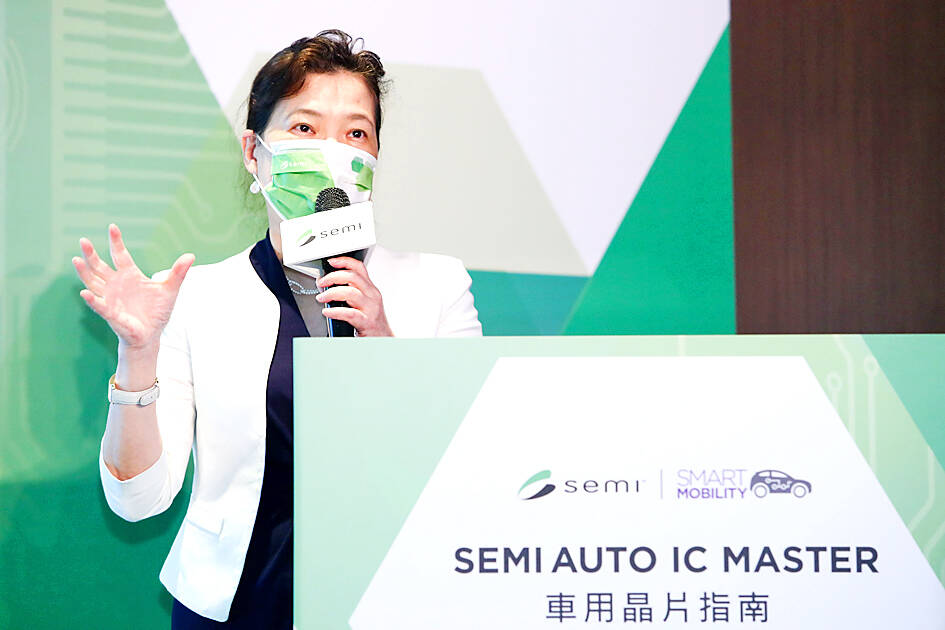Minister of Economic Affairs Wang Mei-hua (王美花) on Saturday returned from Japan, where she held talks on bilateral cooperation, including on semiconductors and electric vehicles (EVs), the Ministry of Economic Affairs said.
Wang arrived in Japan on Aug. 28 to witness the signing of a semiconductor supply chain partnership memorandum of understanding between the Taiwan-Japan Industrial Collaboration Promotion Office and Japan’s Kumamoto Prefecture.
The office and the prefecture would also collaborate on cross-field innovation development, the ministry said.

Photo: CNA
Japanese semiconductor production material and equipment suppliers have been keen to invest in Taiwan, it said, citing a plan by Sumco Corp, the second-largest silicon wafer maker in the world, and Formosa Plastics Group (台塑集團).
The two companies have agreed to invest NT$28.2 billion (US$921.93 million) on a 12-inch silicon wafer plant in Yunlin County’s Mailiao Township (麥寮). Production is scheduled to start in 2024.
Taiwan Semiconductor Manufacturing Co (TSMC, 台積電) and two Japanese firms also plan to build a fab, which is scheduled to start mass production in 2024, the ministry said.
The fab would manufacture specialty chips using TSMC’s mature 22-nanometer and 28-nanometer technologies.
Taiwan leads its peers in the development of high-end semiconductor technologies, and if Japan’s semiconductor production material and equipment suppliers continue to cooperate with Taiwan, the two countries could bolster their competitive edge in the global market, Wang said in a statement.
To boost bilateral ties, Wang visited the Japan Business Federation, a major business group, and several enterprises, including Sumco, Canon Inc, power supplier Jera Co, Mitsui Chemicals Inc, Panasonic Corp and IT solution provider NEC Corp.
Asked by the Japanese firms about a talent shortage in Taiwan, Wang promised to expand talent exchanges and training between Taiwan and Japan to ensure that the semiconductor supply chain is more resilient.
Taiwan excels in IC design, as well as electronics hardware and software development with respect to intellectual property rights, Wang said.
It can also respond promptly to sudden market changes, enabling the nation to produce critical components for EV use, she said.
Taiwan and Japan could aim for a larger share of the global smart EV market through cooperation in automotive electronics, smart cabins and 5G and the Internet of Vehicles connections, she added.
Wang is also eyeing business opportunities in carbon reduction amid the government’s goal to reach net zero emissions by 2050, the ministry said.
During her visit, she explored the use of hydrogen power to reduce thermal power generation and cut carbon emissions in Taiwan.
The promotion office was established by the ministry in March last year to accelerate the pace of industrial cooperation between Taipei and Tokyo.
Japan and Taiwan have since bolstered their cooperation in semiconductor development, the ministry said.
Comments will be moderated. Keep comments relevant to the article. Remarks containing abusive and obscene language, personal attacks of any kind or promotion will be removed and the user banned. Final decision will be at the discretion of the Taipei Times.














